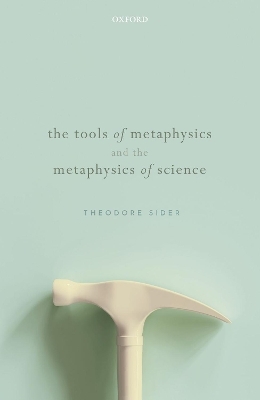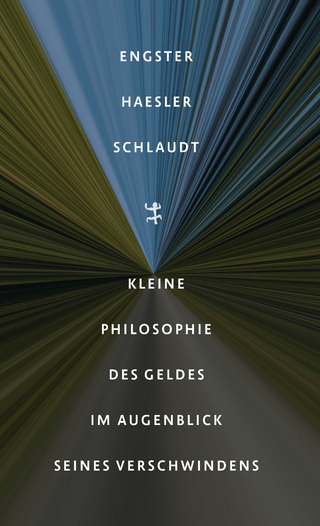
The Tools of Metaphysics and the Metaphysics of Science
Seiten
2020
Oxford University Press (Verlag)
978-0-19-881156-5 (ISBN)
Oxford University Press (Verlag)
978-0-19-881156-5 (ISBN)
Metaphysics has shifted ground, moving away from necessity and possibility as the lens through which we look at things. Ted Sider shapes the agenda for the subject by exploring how this shift transforms the project of understanding the objects, properties, and quantities of the universe, and the relations between them, in terms of structures.
Metaphysics is sensitive to the conceptual tools we choose to articulate metaphysical problems. Those tools are a lens through which we view metaphysical problems, and the same problems will look different when we change the lens. In this book, Theodore Sider identifies how the shift from modal to "postmodal" conceptual tools in recent years has affected the metaphysics of science and mathematics. He highlights, for instance, how the increased consideration of concepts of ground, essence, and fundamentality has transformed the debate over structuralism in many ways. Sider then examines three structuralist positions through a postmodal lens. First, nomic essentialism, which says that scientific properties are secondary and lawlike relationships among them are primary. Second, structuralism about individuals, a general position of which mathematical structuralism and structural realism are instances, which says that scientific and mathematical objects are secondary and the pattern of relations among them is primary. And third, comparativism about quantities, which says that particular values of scientific quantities, such as having exactly 1000g mass, are secondary, and quantitative relations, such as being-twice-as-massive-as, are primary. Sider concludes these discussions by considering the meta-question of when theories are equivalent and how that impacts the debate over structuralism.
Metaphysics is sensitive to the conceptual tools we choose to articulate metaphysical problems. Those tools are a lens through which we view metaphysical problems, and the same problems will look different when we change the lens. In this book, Theodore Sider identifies how the shift from modal to "postmodal" conceptual tools in recent years has affected the metaphysics of science and mathematics. He highlights, for instance, how the increased consideration of concepts of ground, essence, and fundamentality has transformed the debate over structuralism in many ways. Sider then examines three structuralist positions through a postmodal lens. First, nomic essentialism, which says that scientific properties are secondary and lawlike relationships among them are primary. Second, structuralism about individuals, a general position of which mathematical structuralism and structural realism are instances, which says that scientific and mathematical objects are secondary and the pattern of relations among them is primary. And third, comparativism about quantities, which says that particular values of scientific quantities, such as having exactly 1000g mass, are secondary, and quantitative relations, such as being-twice-as-massive-as, are primary. Sider concludes these discussions by considering the meta-question of when theories are equivalent and how that impacts the debate over structuralism.
Theodore Sider is Andrew W. Mellon Chair in Philosophy and Distinguished Professor at Rutgers University. He completed his PhD at the University of Massachusetts at Amherst, and has previously held positions at New York University, the University of Rochester, Syracuse University, and Rutgers University. He is the author of Writing the Book of the World (Oxford 2011), Logic for Philosophy (Oxford 2010), Riddles of Existence: A Guided Tour of Metaphysics (Oxford 2005, with Earl Conee), and Four-Dimensionalism: An Ontology of Persistence and Time (Oxford 2001).
1: Postmodal metaphysics and structuralism
2: Nomic essentialism
3: Individuals
4: Quantities
5: Equivalence
6: The fundamentalist vision
| Erscheinungsdatum | 03.01.2020 |
|---|---|
| Verlagsort | Oxford |
| Sprache | englisch |
| Maße | 162 x 242 mm |
| Gewicht | 508 g |
| Themenwelt | Geisteswissenschaften ► Philosophie ► Metaphysik / Ontologie |
| Mathematik / Informatik ► Mathematik | |
| Naturwissenschaften | |
| ISBN-10 | 0-19-881156-X / 019881156X |
| ISBN-13 | 978-0-19-881156-5 / 9780198811565 |
| Zustand | Neuware |
| Haben Sie eine Frage zum Produkt? |
Mehr entdecken
aus dem Bereich
aus dem Bereich
Buch | Hardcover (2024)
Matthes & Seitz (Verlag)
28,00 €
Über konstruktivistisches Denken in der Theologie
Buch | Softcover (2024)
Verlag Herder
58,00 €


